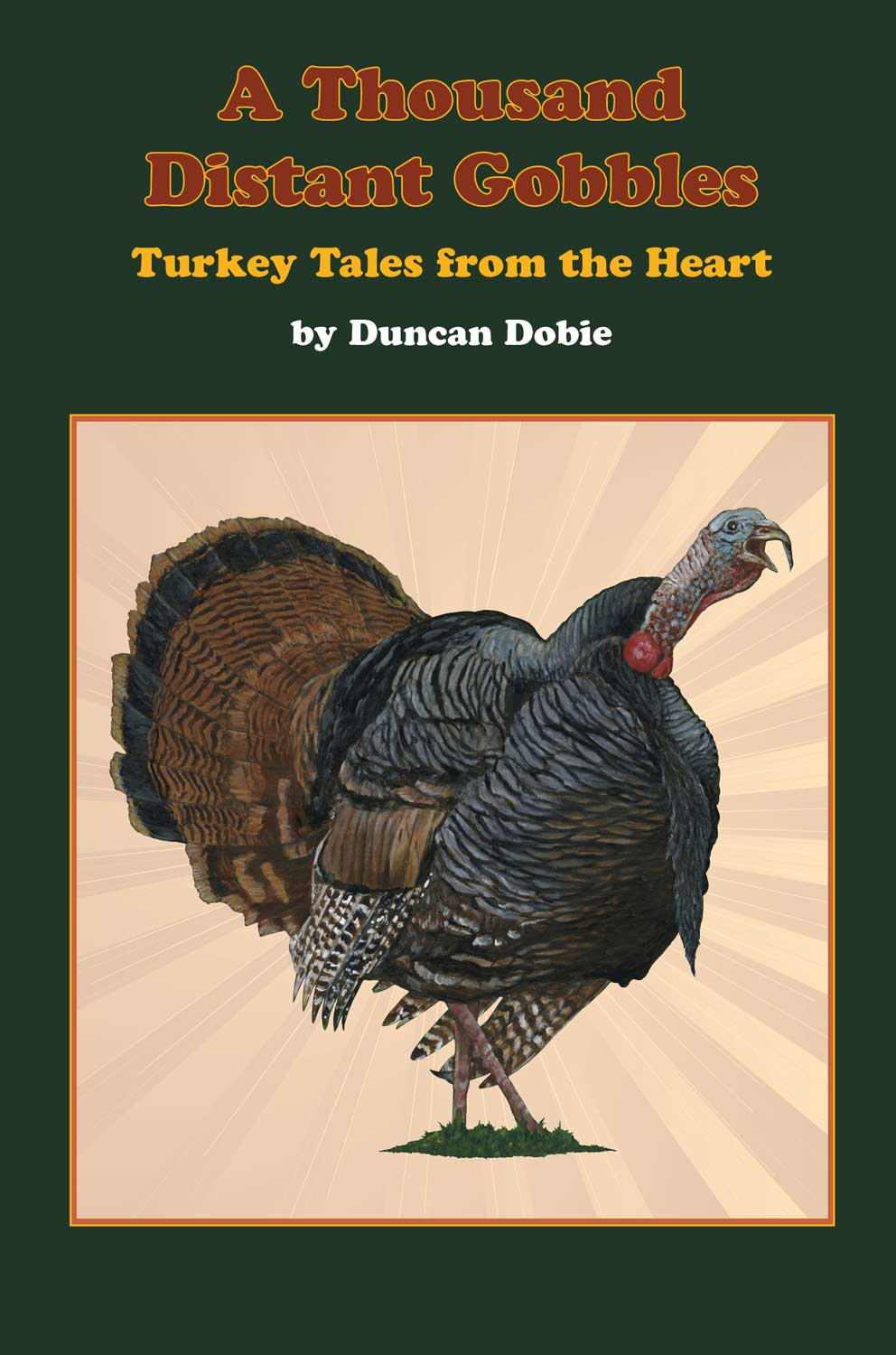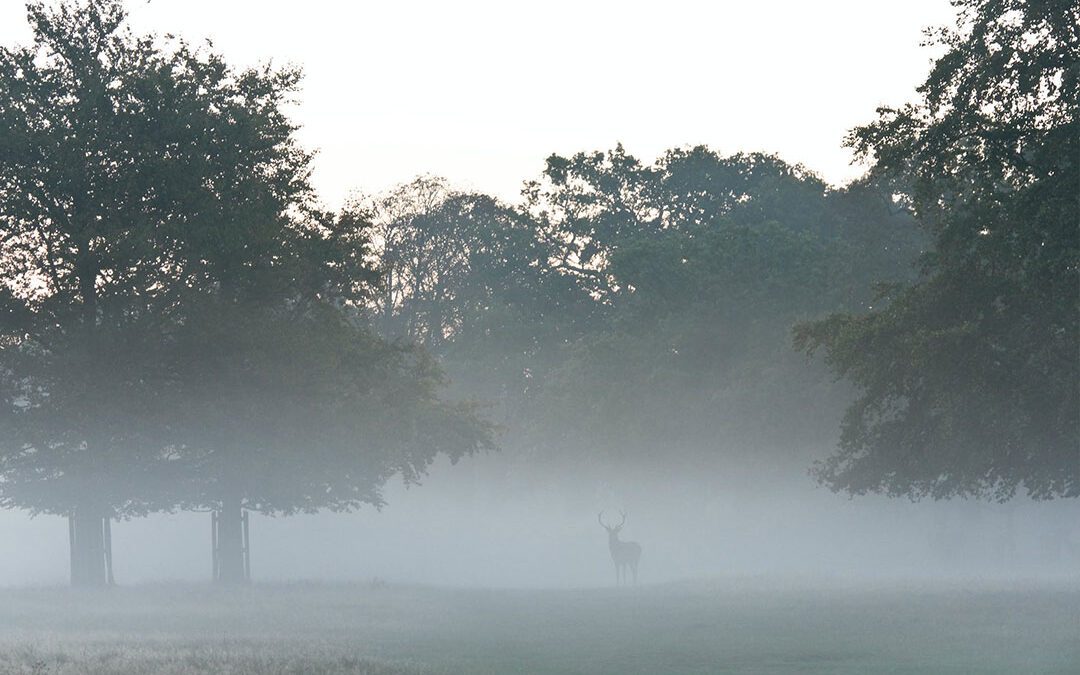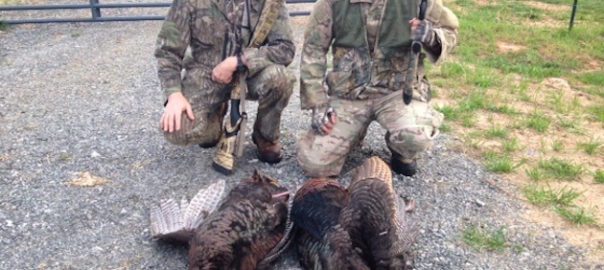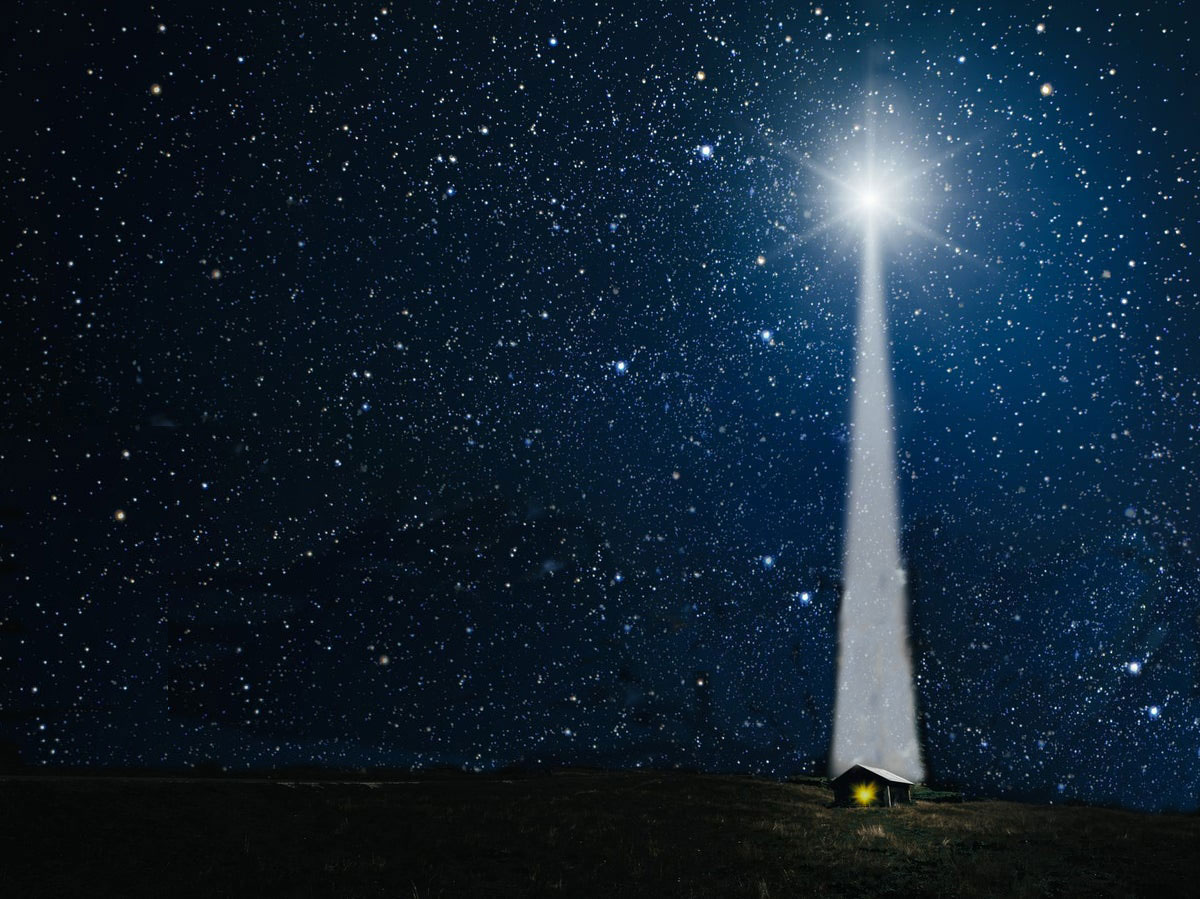I never broke that rule, and I don’t know what would have happened if I had. In some Georgia counties where we hunted, we were led to believe that if you so much as fired a .22 on the Sabbath, the local sheriff, who we just knew was waiting in the bushes for us to make the slightest transgression, would surround you with a pack of deputies and haul you away to the big house for an indefinite period of time.
The no hunting on Sunday laws began changing during the early ’70s. Eventually, hunting on Sunday became very important, because so many “weekend warriors” had to work on weekdays.
Part I:
“Why can’t we hunt tomorrow?” the teenage boy asked.
“Because it’s Sunday,” Uncle Buck answered with an air of finality in his voice. As he stirred the glowing coals of the dying campfire with a long stick, yellow flames flared up for several seconds, lighting up a half-dozen sullen faces. “You boys know they ain’t no huntin’ on the Sabbath. Why do we always go through this same routine every weekend? You know Sunday’s the day we break camp and go home.”
“Yeah, but we never break camp on Sunday until late in the afternoon,” Logan Collins argued. “At least three or four o’clock. Why can’t we hunt ’til then?”
“Because it’s against the law to hunt on Sunday in Georgia and most other states,” Uncle Buck answered. “We start shootin’ up the woods down here on Sunday and somebody’ll call the sheriff and make a complaint. He’ll feel obliged to come pay us a visit, and the first thing ya’ know, he’s done shut down our entire huntin’ operation. That’s why!”
“But why is it against the law?” Logan asked. “We’ve got nearly 3,000 acres of woods leased down here to hunt on and a man could get lost on that much land. Who’s gonna know if one measly little hunter is out there in a deer stand mindin’ his own business? The sheriff isn’t gonna come all the way down here on Sunday morning to see who’s sittin’ in their stand and who isn’t, is he? It would take an army to go through our woods and find everybody’s stand. Anyway, if the Good Lord didn’t want us to hunt on Sunday, why’d he include Sunday in the weekend? We’ve only got two days in every weekend, and five days of school in between. That means two days of heaven, and five days of h . . .”
“Watch yer’ language, now,” Uncle Buck warned.
Logan was not related to Buck Anderson in any way, but like everyone else in their hunting club, he respected him greatly and always referred to him as Uncle Buck.
“Okay. How’s this?” the boy asked. “Two really good days of being alive and five days of punishment and misery. But a full one-half of those two really good days is Sunday, so that means we can hunt only half the time. That means we get punished six days a week instead of five, and only one day to hunt on the weekend instead of two. It ain’t fair! One out of seven ain’t very good odds.”
“Life ain’t fair,” Uncle Buck said. “But I’m glad to see all that punishment you been subjected to in school lately has come to some good. At least you can do some addin’ and subtractin’ in your head, even if you do strike out in the English grammar department.”
“I know how to talk,” the boy said. “But everybody says ain’t in deer camp, even you.”
“I’ll have to give you that one,” Uncle Buck said, smiling.
There was a long silence. Several older men sat with the two teenage boys, and everyone stared contentedly at the dying coals. After a few minutes, Logan spoke up again.
“You never answered my question,” he said to Uncle Buck. “Why is it against the law? Everybody else hunts on Sunday. All those guys down at Mulberry Creek hunt on Sunday. They’ve even killed some of their best bucks on Sunday. The sheriff never says anything to them.”
“For starters, Sunday is the Lord’s day, like I already said,” Uncle Buck answered. “‘For six days ye shall toil, and the seventh shall be a day of rest.’ So that’s what we do – rest!”
“But huntin’ ain’t toil,” Logan argued. “It’s fun, pleasant and restful all in one. That’s why we do it in the first place.”
“I can’t argue that one either, but there’s also that little matter of havin’ a fair-sized church located right on the edge of our property out on Highway 36,” Uncle Buck said. “Lot’s of folks attend that church on Sunday mornin’, and it’d be showin’ pretty poor manners on our part to start slingin’ lead during Sunday services.
“In case you haven’t noticed, deer guns make a lot of noise when you shoot ’em off. It’s what’s called showing a little bit of respect. That’s something they don’t teach much of in school these days, but it’s still right important.
“As for everyone else doin’ it, well, there are a few clubs around that like to bend the rules,” Uncle Buck continued. “But we’re not gonna be like them! You bend one rule, like huntin’ on Sunday, and first thing you know you break another, like shootin’ a doe when it ain’t doe day. Pretty soon you graduate to shootin’ more than the legal limit of bucks. Before you know it, you’re a full-fledged outlaw.”
Logan was not about to give up. “What if we go to our stands in the morning and sit there, just like always, but promise not to hunt,” he offered. “Instead we’ll just look, and if we see anything, we’ll promise not to shoot.”
Uncle Buck laughed out loud. Several of the other men around the campfire chuckled as well. “Why that’s the craziest notion I ever heard,” he said. “You mean to sit here and tell me that if I let you and Marty go to your stands in the morning, as usual with your rifles, that you wouldn’t be tempted to shoot a nice buck if you saw one? Who in their right mind is gonna hold back from that kind of temptation? We’d have to tie yer’ trigger finger behind yer’ back with steel cable!”
“It would be better than sitting around camp and wasting the whole day,” Logan argued.
“In that case, why would you need your rifles, then?” Uncle Buck countered. “I’ll tell you what. You two are welcome to go to your stands in the morning and do as much deer watching as you like – without your rifles! I don’t reckon the Good Lord’ll frown much on that.”
“But that wouldn’t be fair, either,” the boy argued.
“Why not?”
“Because the woods can be dangerous,” Logan reasoned. “If a man is gonna go and sit in his stand, he ought to be armed. What if we run into a pack of wild dogs on our way to our stands? What about that escaped convict that was caught in our woods last summer. Somebody like that could still be out there. What about poisonous snakes?”
“We haven’t had any problems with wild dogs in a ‘coon’s age,” Uncle Buck said. “And ain’t no escaped convict in his right mind gonna come blunderin’ into a camp full of deer hunters with high-powered rifles during deer season. And if you don’t know how to avoid snakes by now, you ought not be in the woods!”
“Maybe we should take up bow-hunting,” the boy said. “That wouldn’t disturb anyone at church. Or, maybe we could get silencers put on our rifles.”
“It would still be huntin’ any way you cut it,” Uncle Buck said. “And you’d still be breakin’ the law. Maybe nobody else would ever know, but you’d know, and if you have half a conscience at all, you wouldn’t feel right about it.”
“I wish the law would change,” Logan said. “If the law changed, I’m sure the Good Lord wouldn’t mind. Anyway, where does it say in the Bible that you can’t hunt on Sunday? If Sunday is supposed to be the day of rest, then why can’t we rest in our deer stands instead of in camp. It seems to me that this is one of those crazy rules made up by society, not by the Good Lord himself. I thought that’s why we come down to deer camp – to get away from all those crazy city rules.”
“Like I said earlier, you got a good point, but it’s gettin’ late, and I ain’t about to get into any heavy discussions or start philosophizing at this hour,” Uncle Buck said. “We can argue ’til the cows come home, but I think you two know the difference in right and wrong. Times are changing. Someday I’m sure the law’ll change, too. Until that time comes, we’ve got to do our best to abide by the rules.
“It about time to turn in and you’ve about worn me out,” he continued. “I’ll make a deal with you. If you and Marty want to get up early and spend a half a day in your stands tomorrow observing – not huntin’ – then it’s okay with me. You can take your rifles, and you can do everything you normally do – except shoot a deer, or anything else for that matter. No convicts, no wild dogs, no shenanigans!
“I don’t want to hear any shots coming out of the swamp. Understood? If you see the biggest buck to ever grace the woods in South Georgia, you just have to sit there and grit yer teeth. If two Boone and Crockett bucks walk under your tree and start cracking acorns, you can wave to ’em and say ‘hello,’ but you can’t shoot. Understood?”
“Yes sir. No Shenanigans.”
As the boys stood up and started to head toward their tent, Logan looked back at Uncle Buck and said, “You never know what might happen though… The Good Lord often works in mysterious ways.”
“You got that right,” he said with a smile. “Only in this case, he’ll have to do it without the help of a rifle or a bullet.”
 Southern storytelling at its best, A Thousand Distant Gobbles is a celebration of turkey hunting through the eyes of some unforgettable and passionate characters who live for opening day of turkey season. Heartwarming, powerful, compelling – the eight short stories and eight turkey vignettes found inside these pages will warm your heart and take you on an unforgettable adventure into the spring turkey woods. Buy Now
Southern storytelling at its best, A Thousand Distant Gobbles is a celebration of turkey hunting through the eyes of some unforgettable and passionate characters who live for opening day of turkey season. Heartwarming, powerful, compelling – the eight short stories and eight turkey vignettes found inside these pages will warm your heart and take you on an unforgettable adventure into the spring turkey woods. Buy Now



